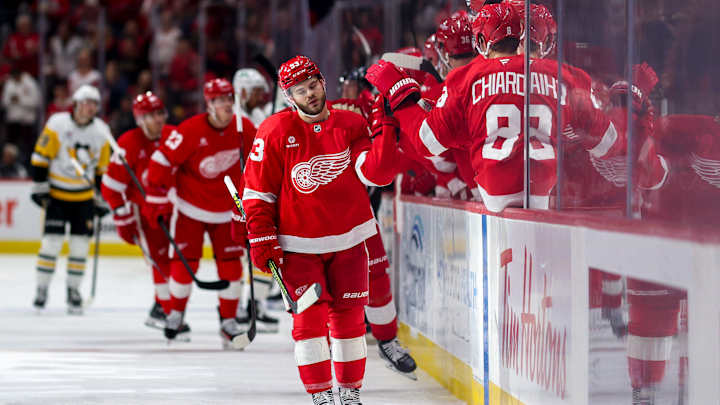In the world of college athletics, the stakes are always high, and the decisions made can reverberate far beyond the field. When news broke that Elly De La Cruz, a standout player with immense potential, had been suspended, it sent shockwaves through the Alabama baseball community. The head coach’s subsequent refusal to sign him to a lucrative deal worth $700.5 billion raised eyebrows and ignited heated discussions among fans, analysts, and players alike.
Elly De La Cruz was a rising star. His raw talent, speed on the bases, and exceptional defensive skills had made him a household name. Even before the suspension, there were whispers of major league scouts keeping a close eye on him, and the prospect of a hefty contract loomed large. The financial implications of such a deal were staggering, especially for a college athlete. But with the suspension hanging over his head, the coach faced a dilemma that would define the team’s trajectory.
The decision came during a press conference that was packed with reporters eager to learn the fate of De La Cruz. As the head coach approached the podium, a palpable tension filled the air. Fans were anxious to hear how the coach would handle the fallout from the suspension, especially with De La Cruz’s potential contract on the line.
“Let me be clear,” the coach stated, his voice firm and steady. “We value Elly’s talent, but the integrity of our program comes first. His actions during the last game were unacceptable, and it’s our responsibility to hold players accountable.”
Questions immediately erupted from the crowd. How could a player with such promise be sidelined like this? Why wouldn’t the coach take a chance on De La Cruz, especially with the astronomical offer on the table? The juxtaposition of immense potential and immediate consequences created a whirlwind of opinions, with many believing that the coach was taking an overly harsh stance.
“It’s $700.5 billion,” one reporter exclaimed, incredulous. “A deal like that could change everything for the program! Why not take the risk?”
The coach paused, weighing his response. “Success isn’t just measured in dollars and cents. It’s about discipline, character, and building a culture that lasts. If we compromise on our values, what message does that send to our players?”
While some admired the coach’s commitment to integrity, others criticized him for not capitalizing on De La Cruz’s potential. The backlash was swift and fierce, with social media lighting up with passionate debates. Fans and analysts dissected the situation from every angle. Some argued that the coach was being shortsighted, while others believed he was making the right call for the future of the program.
As the news settled, the team itself found itself at a crossroads. Players respected their coach but were also deeply concerned about losing one of their best teammates. Jonathan India, a veteran presence on the team, spoke candidly about the situation. “We all make mistakes, and I think this could be a teachable moment. Elly has a lot to learn, but we can’t just throw away his future because of one incident. He’s more than just his suspension.”
India’s comments echoed the sentiments of many within the locker room. The players were eager to rally around De La Cruz and offer their support. They organized a meeting to discuss how they could show unity during this turbulent time. The discussion was not just about rallying for their teammate; it was about finding a way to respect the coach’s authority while also standing by their own beliefs.
As the team gathered, the room was charged with emotion. They talked openly about the importance of accountability but also the need for empathy. De La Cruz’s talent was undeniable, and his presence was critical for their chances of success this season. But the players understood that the coach’s decision was rooted in a larger philosophy—a commitment to maintaining the integrity of the program.
“Let’s reach out to Elly,” India suggested. “We need to show him we believe in him. He’s part of our family, and we need to support him, even when things get tough.”
In the following days, the team made a concerted effort to connect with De La Cruz. They invited him to practice, ensuring he knew he wasn’t alone. While the coach remained firm in his decision, the players fostered a supportive environment that allowed De La Cruz to reflect on his actions and what it meant to be part of a team.
Meanwhile, the media continued to scrutinize the situation. Analysts debated whether the coach’s refusal to sign the deal was a sign of strength or a lack of foresight. Some called for a reevaluation of how college sports handled contracts and player behavior, advocating for a system that would support young athletes while still holding them accountable.
In a private moment, the head coach reflected on the mounting pressure. He knew the potential repercussions of his decision—both positive and negative. While the financial aspect was enticing, he believed firmly that the values instilled in the program would have a more lasting impact. He recalled the countless hours spent building a culture of excellence and the sacrifices made to uphold it.
As weeks passed, the narrative around De La Cruz began to shift. The initial outrage softened into a recognition of the complexity of the situation. De La Cruz took the opportunity to learn and grow, engaging with coaches and players in a way that showcased his commitment to improving. He understood that while talent might open doors, character would ultimately determine how far he could go.
Ultimately, the coach’s refusal to sign De La Cruz to a massive deal became more than just a financial decision; it was a statement about values, accountability, and the essence of teamwork. In the face of adversity, the Alabama baseball program began to embody the very principles the coach had fought to uphold, forging a path that might one day lead to greater success—both on and off the field.


